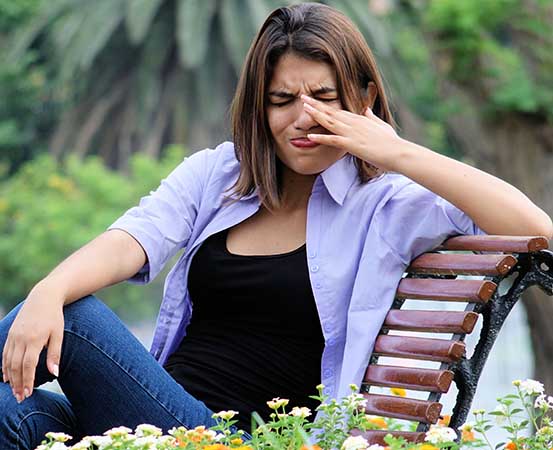
Chronic pain is a complex health issue and women seem to be more susceptible to it than men. Various research has brought out the factors that cause this gender gap in pain perception. A review of chronic pain’s epidemiology and associated factors in population-based studies, published in British Journal of Anaesthesia, states that women have been shown to have lower pain thresholds and tolerance and are more likely to experience greater intensity and unpleasantness with pain.
Biological dissimilarities between men and women, including genetic factors and variance in pain processing pathways, contribute to the gender gap in chronic pain. These differences can influence the prevalence and intensity of certain pain conditions.
Why are women prone to chronic pain?
Women have more preponderance to chronic pain mainly because of their anatomical composition. They have more nerve fibers per square centimeter compared to men; hence, their pain perception is higher. “Their neural transmission [transmission of pain signals] is higher because the number of nerves carrying pain signals is more,” says Dr Raghavendra Ramanjulu, lead consultant, palliative medicine and rehabilitation, Aster Hospital, Bangalore.
Emotional factors play a major role in the transmission of signals to the brain. After an injury and tissue damage, pain perception could be lesser when one is not low or stressed. The perpetual juggle between home and professional responsibilities most women endure, and the sociocultural pressures pertaining to their role in both, are major sources of stress and strain.
“Women are emotional not only because of the hormones. Rather, their mental makeup is such that they tend to feel more emotions compared to men,” explains Dr Ramanjulu. Throw in hormonal fluctuations into the equation and things, including pain perception, get tough.
“Hormonal fluctuations during the menstrual cycle, pregnancy and menopause can influence pain perception,” says Dr Ramkinkar Jha, arthroscopy and robotic joint replacement surgeon, Artemis Hospitals, Gurgaon. Some women may experience heightened sensitivity to pain during certain phases of their menstrual cycle. Moreover, if they have negative emotions, the perception of pain can increase.
During menopause, the drop in estrogen levels can cause chronic pain. For instance, when calcium deposits in the bone decrease, the chances of osteoporosis and chronic pain increase. The drop in estrogen also makes a lot of women put on weight, making them prone to conditions such as osteoarthritis or degeneration of the knee and discs. “The difference in skeletal muscle mass and decrease in muscle strength are the other factors for joint degeneration. These can lead to chronic pain in women,” says Dr Ramanjulu.
What types of chronic pain are women prone to?
Dr Jha explains the various types of chronic pain women commonly seen in women:
Fibromyalgia: This is musculoskeletal pain caused by fatigue and sleep disturbances that predominantly affects women. Hormonal factors, genetic predisposition, and central sensitization (process where the central nervous system becomes hypersensitive to pain signals) contribute to the higher prevalence of fibromyalgia in the female population.
Irritable Bowel Syndrome (IBS): Hormonal influences and heightened stress sensitivity may contribute to the higher prevalence of IBS, a chronic condition, in women.
Endometriosis: A painful condition where tissue similar to the lining of the uterus grows outside it, endometriosis primarily affects women of reproductive age. The condition can cause pelvic pain, dysmenorrhea (painful periods), and pain during intercourse.
Rheumatoid arthritis: Autoimmune factors and hormonal influences may contribute to the higher incidence of rheumatoid arthritis in women.
How to manage chronic pain?
Following proper ergonomics, the right nutritional pattern, a regular exercise routine and managing stress levels using various means including meditation can help manage chronic pain.
If the pain lingers despite making lifestyle changes, it is imperative to seek a proper clinical diagnosis by looking into the causative factors. This can help in devising a comprehensive and personalized plan for treatment. “Open communication about pain symptoms and their impact on daily life is crucial for accurate diagnosis and effective management of pain,” stresses Dr Jha.
In addition, sleep is an important factor in managing chronic pain. “When the sleep pattern is disturbed, the muscles go into spasmodic mode and become tight. This can cause disturbances in performing daily chores,” explains Dr Ramanjulu.
Medical interventions based on the diagnosis of the cause of pain include medication, physical therapy, psychological support, lifestyle modifications and hormonal replacement therapy.
Takeaways
- Women are more prone to chronic pain due to several reasons, including hormonal factors, central sensitization, genetics and anatomical structure.
- Issues such as fibromyalgia, IBS, endometriosis and rheumatoid arthritis are more commonly seen in women.
- Women experiencing chronic pain should seek guidance from healthcare providers and have open communication about the symptoms and their impact on daily life.

















